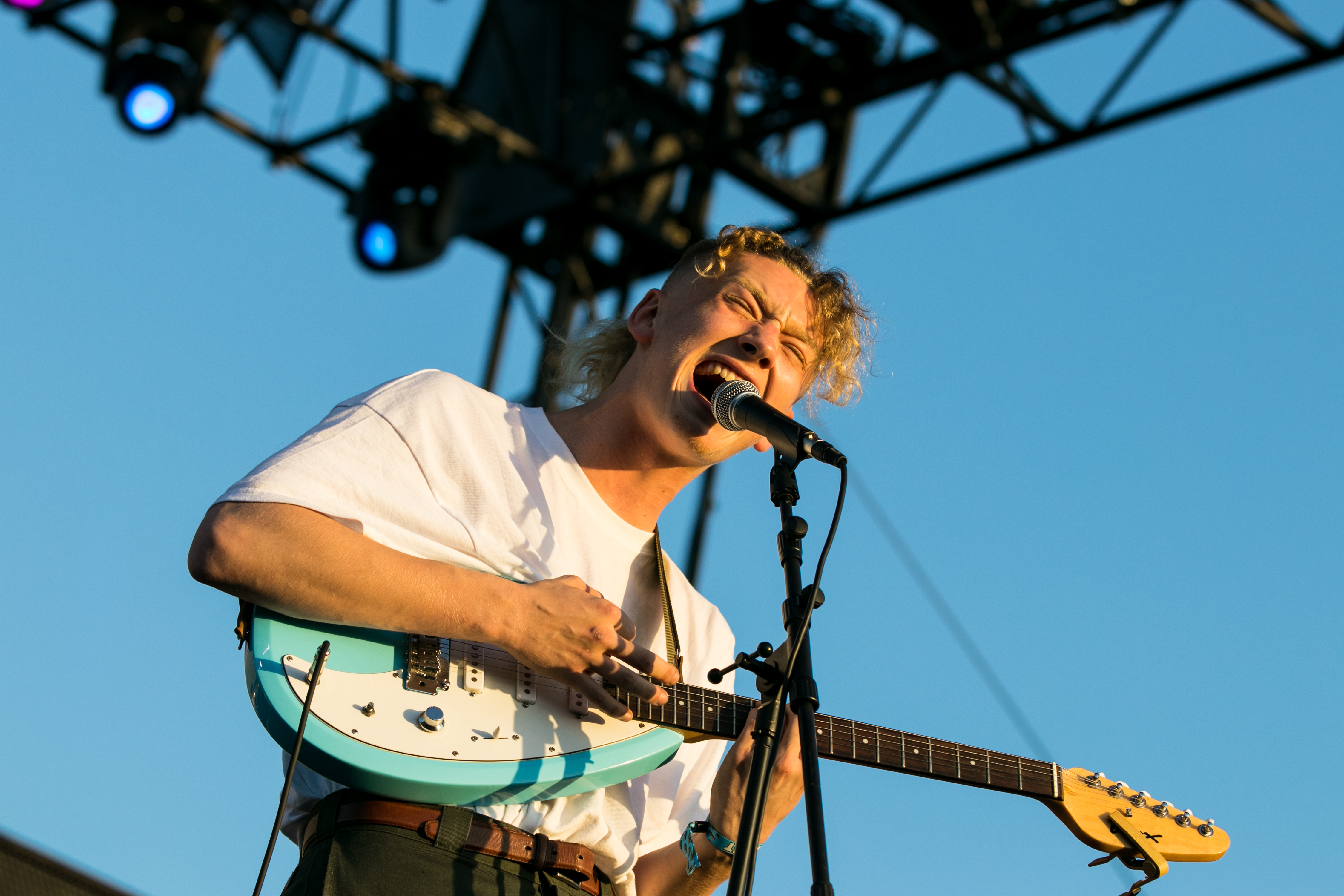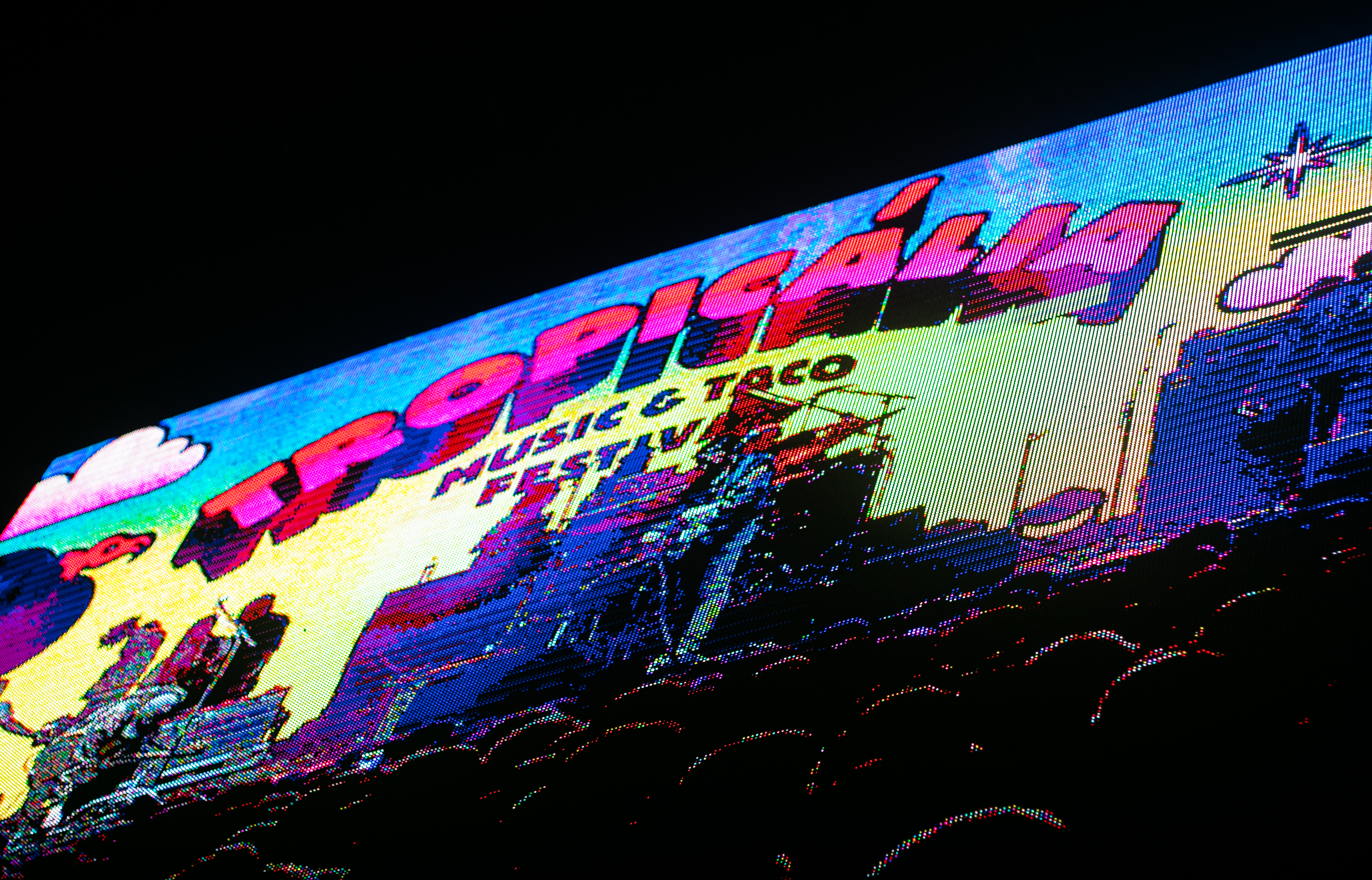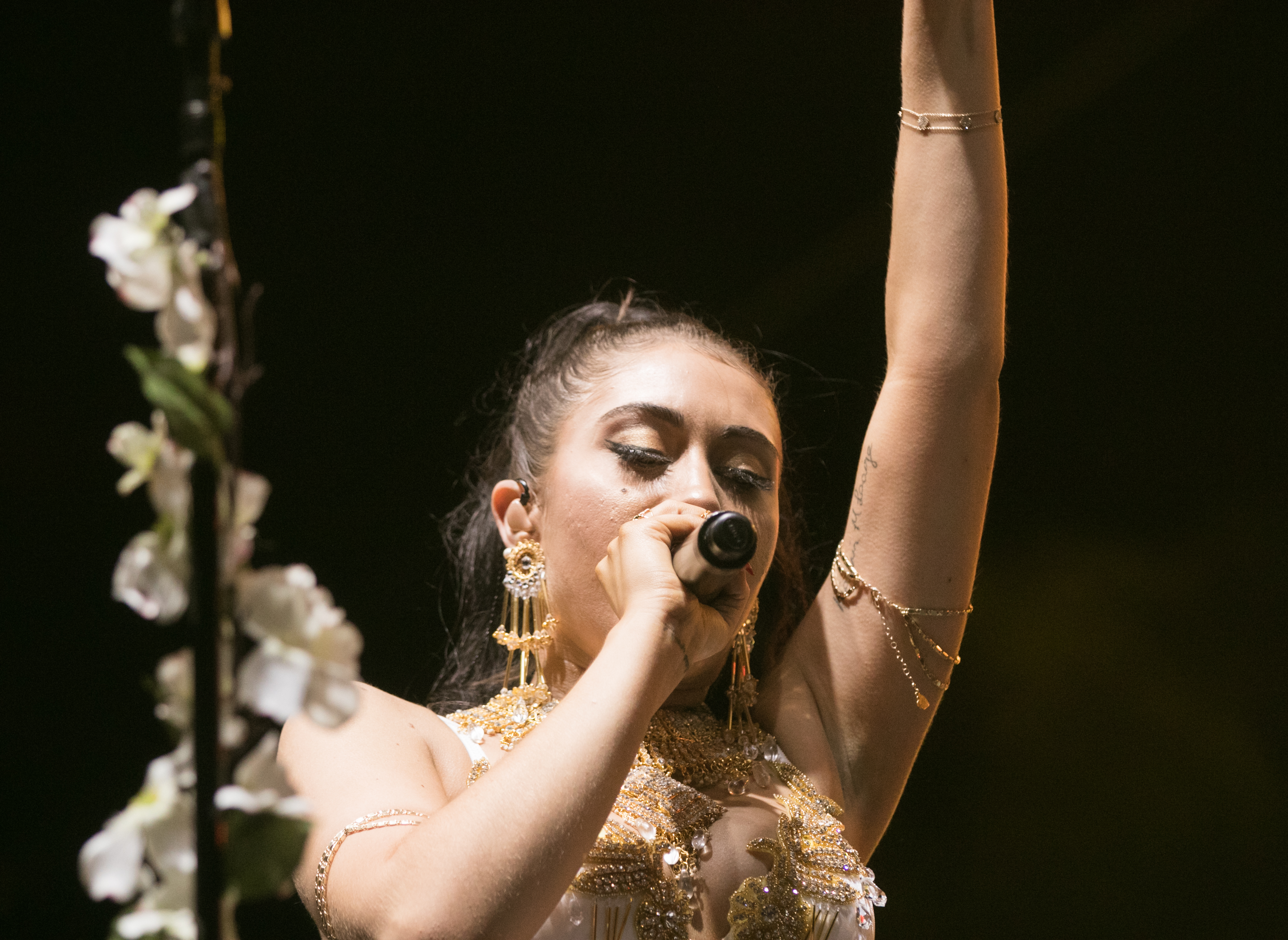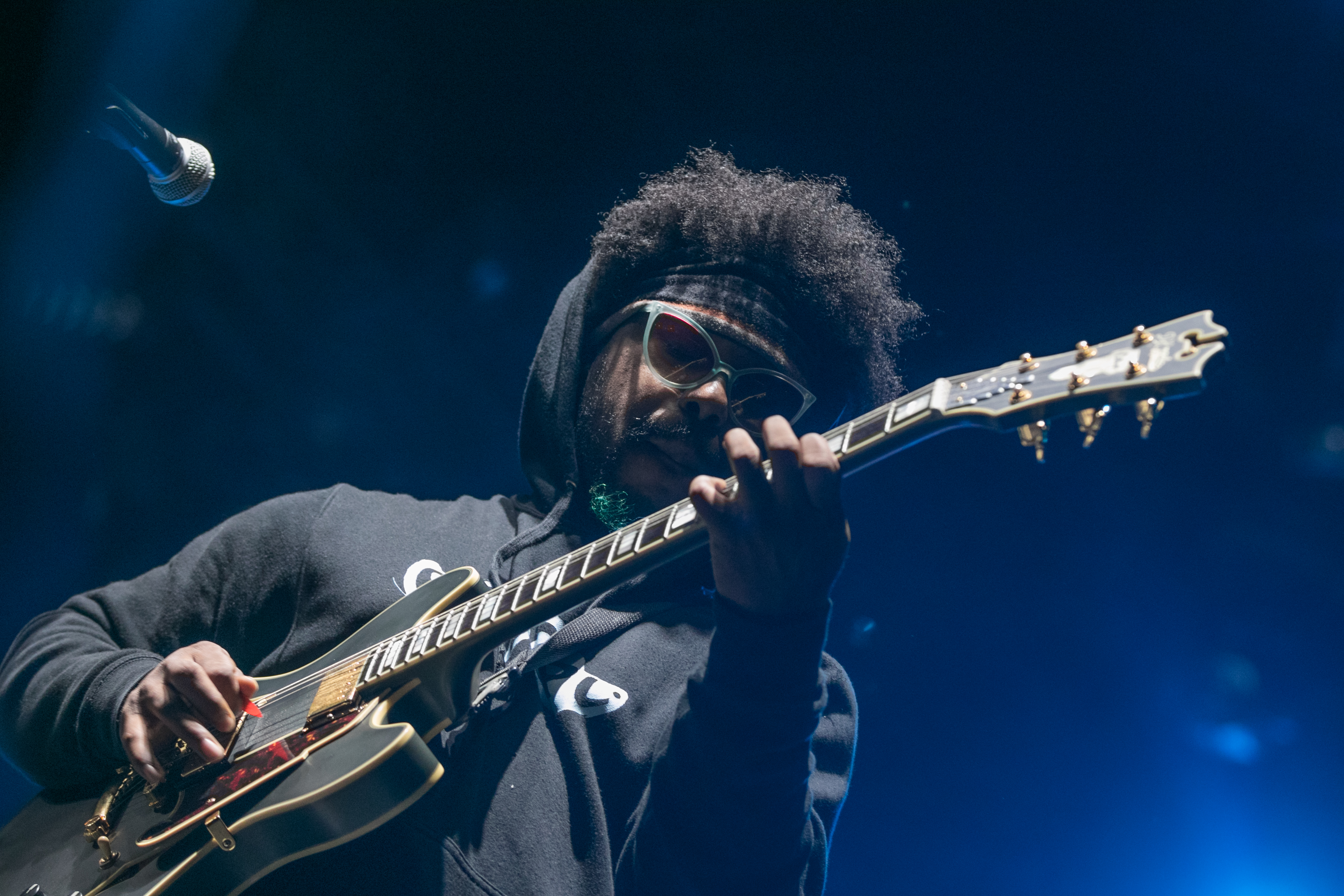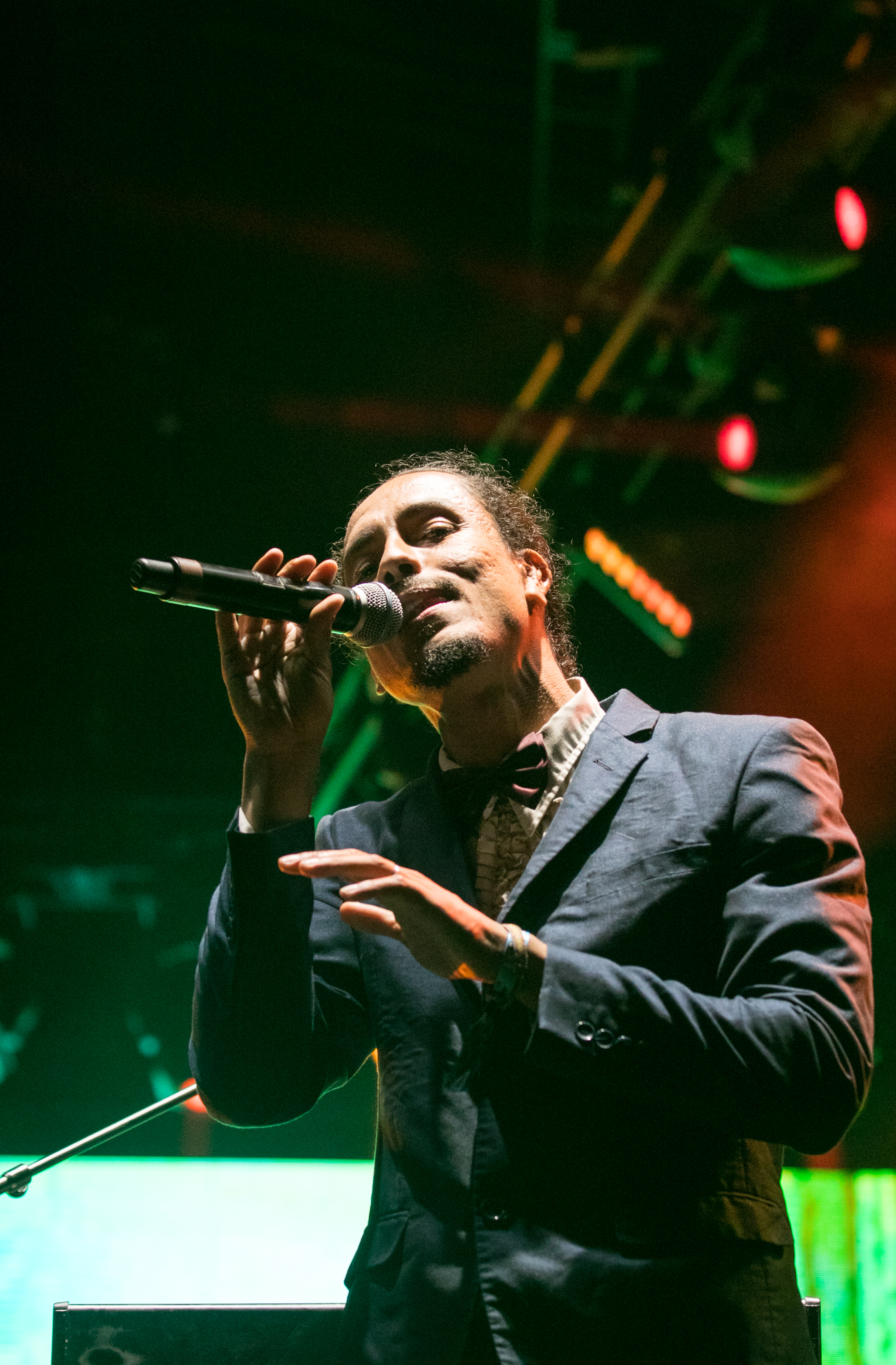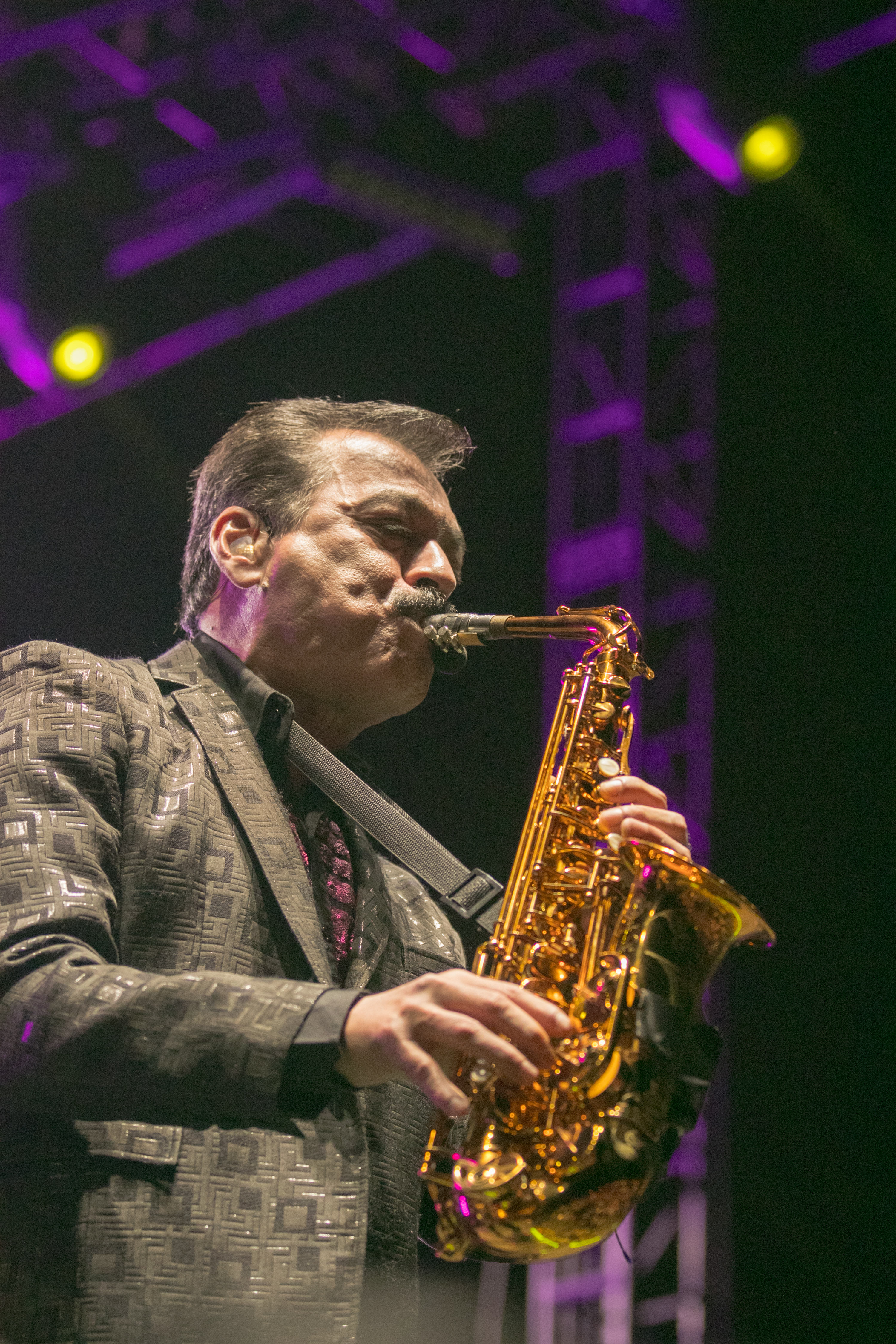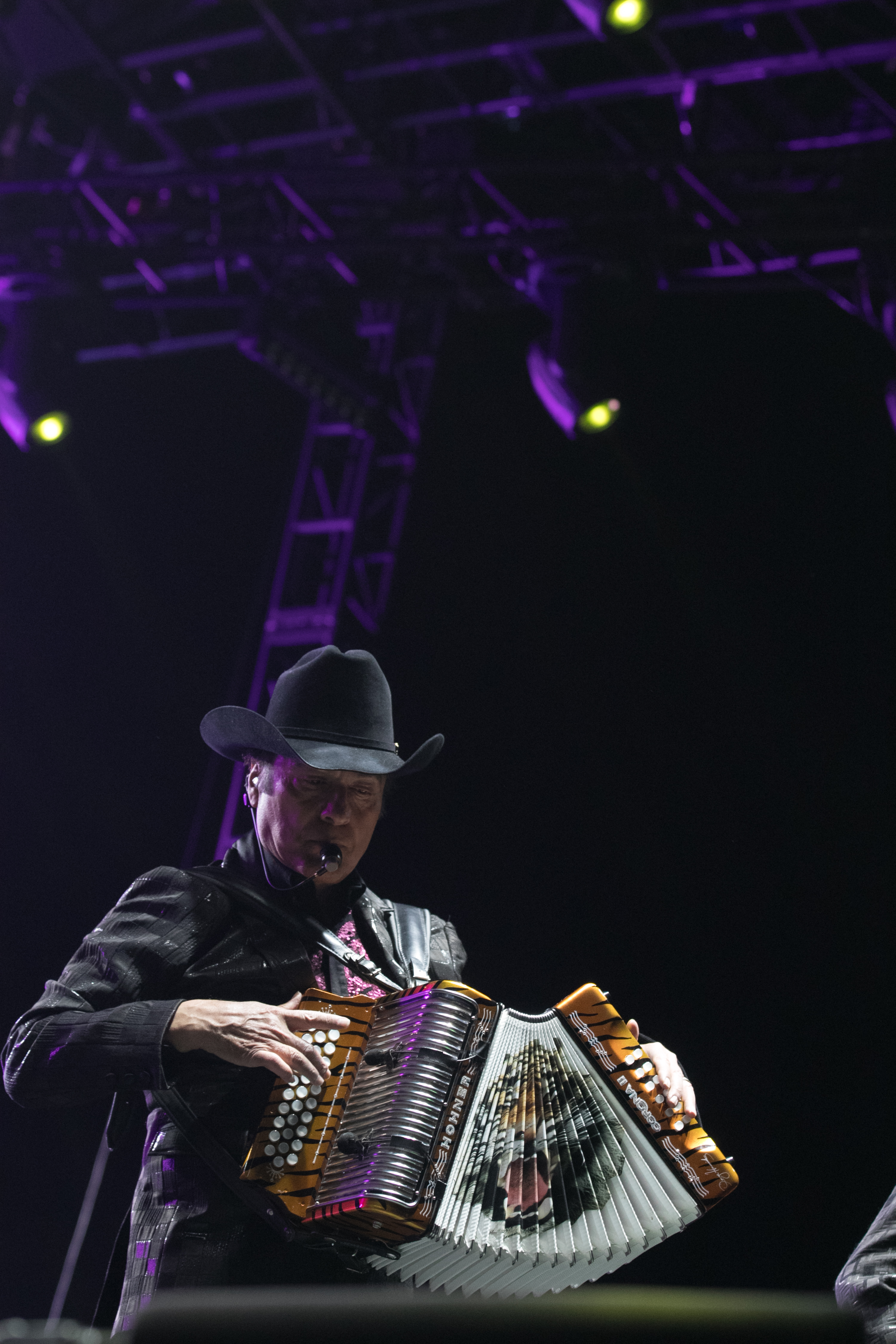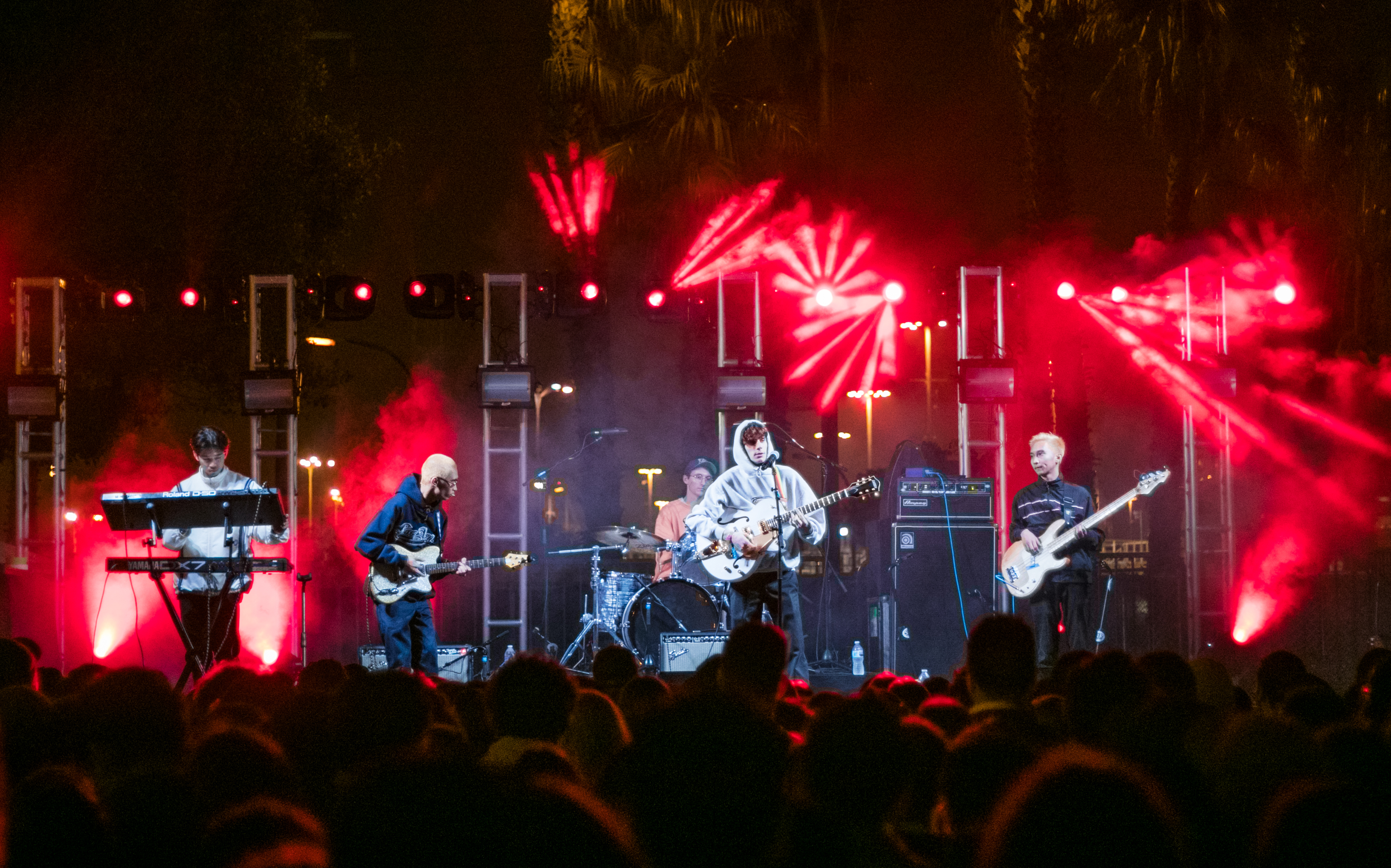If someone were to to tell you that The Observatory — the Santa Ana-based music venue which previously hosted such events as the hip-hop focused Day N Night and emo fest When We Were Young — were to organize a music and taco festival headlined by norteno legends Los Tigres del Norte, with a roster including eclectic Londoner King Krule and “Pony” singer Ginuwine, what would your reaction be? I can’t speak for everyone, but mine was one fueled by laughter and excitement, almost disbelief. The concept of this festival sounds partially fictitious, but the events that transpired on Nov. 11 were anything but.
Thousands upon thousands of people — with some estimating a staggering 15,000 — flocked to Long Beach’s Queen Mary Park. As if in tune with the ocean liner’s spooky celebrity, the ghosts of Latinx past (and present and future) took center stage, only the throwbacks were tenaciously animated.
Early acts like hip-hop outfit Phony Ppl and indie trio Summer Salt represented the younger crowd’s branching musical interests tangential to the Spanish-speaking juggernauts that came later in the night. While the colored-haired youth enjoyed their mornings catching bands like surf rockers Surf Curse and Burger Records locals The Buttertones (likely bumming a few cigarettes along the way too), plenty others ran to get a shot in line for some tacos.

Dividing the venue in two was an underground tunnel. On one end, the side entered from, situated the Tropicalia (main) and Modelo stages; on the opposite end, beyond the cavernous graffiti-lined passage, beheld the Dia de Los Puercos and Mota stages as well as nearly 30 food vendors, with options ranging from vegan tacos to pupusas to elotes. From the time of opening until 4 p.m., free tacos were awarded to those patient enough to wait in line — the operative word being “awarded” as those lines were absolutely bonkers.
I cannot speak for the entirety of food vendors at Tropicalia, but an elote is an elote (despite the $5 price tag), and three chicken tacos for $10 is fair per festival standards. Early attendees uneager to catch any artists during the day certainly had ample time to slowly fill their bellies with the plethora of food options at no cost. By no means did Tropicalia invent a venue for the emotional catharsis of music and the hedonic pleasure of food overload to wed on a large scale (Music Tastes Good, for instance, marries this couple in the same city every year). But catching Mexican alt-rock favorites Cafe Tacvba and gorging on tacos was certainly singular to this experience.

Curious was the decision to place the two stages adjacent to the taco stands — Mota and Día de Los Puercos — so close together. In concept, it’s a disastrous placement spelling out a bleeding of sounds. But as funny (or infuriating) as it would be to see famed soul crooner Brenton Wood clash with self proclaimed surf-wop trio Sadgirl (who I recently discovered does not, in fact, have any sad girls in their band), sets began as soon as the other ended. Los veteranos se regocijan. Like with Summertime in the LBC, The Observatory’s previous music festival, oldies reigned supreme, with crooners cherished by many among the Latinx community like the lively Wood and “La La Means I Love You” singers The Delfonics taking listeners through a time warp. Closing the night off at the Dia de Los Puercos stage was Jhene Aiko, backed up by a harp that (surprisingly) suited her set.
Earlier at the main stage, breakout millennial artist Cuco performed his typical mix of half-sung half-rapped, half-English half-Spanish bedroom pop before a swooning crowd. “I wasn’t expecting too much,” Juliet S. admits, “but I was really impressed… I think he’s cool ‘cause he’s just this young guy living life making music he likes… he seems very down to earth.” The Queen of Reggaeton, Puerto-Rican phenom Ivy Queen, shared the stage immediately after, embellishing Tropicalia’s intergenerational cohesion of Latinx artistry weaved together by artists like the 18-year-old Cuco and those who paved the way for his success. Cafe Tacvba drew an immense crowd as the day turned to night, playing fan favorites like loving ballad “Como Te Extrano Mi Amor” and “El Baile Y El Salon” off their seminal 1992 album, “Re.” Isaac Alfaro, 21, hailed them as the night’s highlight. “I grew up around them because of my mom but I didn’t know exactly who they were,” but in catching them live, he “definitely became a fan… I had the time of my life dancing during their set.”

Bellowing Tropicalia’s eclecticism was Archy Marshall’s volatile baritone. The medicated throes of breakneck cut “Emergency Blimp” coalesced with dulcet tunes like “Baby Blue.” It was an interesting prelude to Kali Uchis’ set, a transition swapping perspirous mosh pits for sumptuous sensuality.
Closing off the night in a regal, cinematic fashion were Los Tigres del Norte, the headliners whose importance among the Mexican crowd could not be understated. For many, Los Tigres were reason enough for attendance. The 90-minute long set drew from crowd favorites like 2002’s “La Reina del Sur” and heartbreak ballad “Golpes en el Corazon.” Tears were definitely shed.
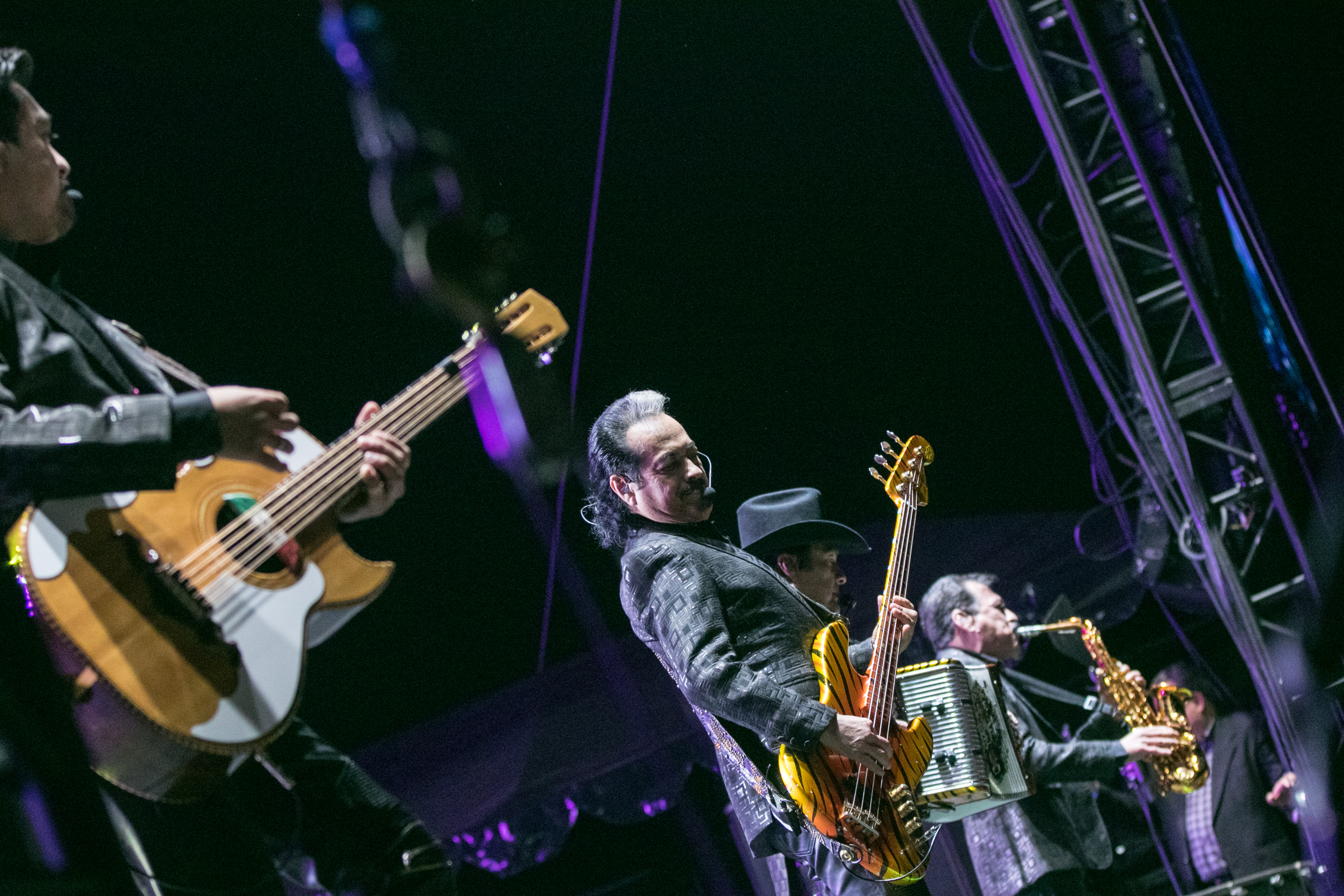
On the whole, Tropicalia launched with great momentum, but a few of its first-time hiccups impeded its execution. Karina S. of Santa Ana references LA festival FYF, observing that “others have art showcased throughout the festival grounds. I think it would be interesting for The Observatory to seek out Latinx artists of different ages,” further commenting on the benefit that would arise “if they were more bilingual in their advertising and hosting.”
In so many words, leaving Queen Mary Park sucked. Taking shuttles to the venue was understandably a smart move entering the park, but exiting was a nightmare of a journey, totaling upwards of an hour for some just to return to the designated parking zone. Perhaps this can be patched up in subsequent years. Other complaints are embedded into the music festival formula: Uneventful set times and conflicts, pricey food, the unspeakable horrors that lay dormant within porta potties. It’s a small price relative to the enjoyable experience of seeing your favorite artists.
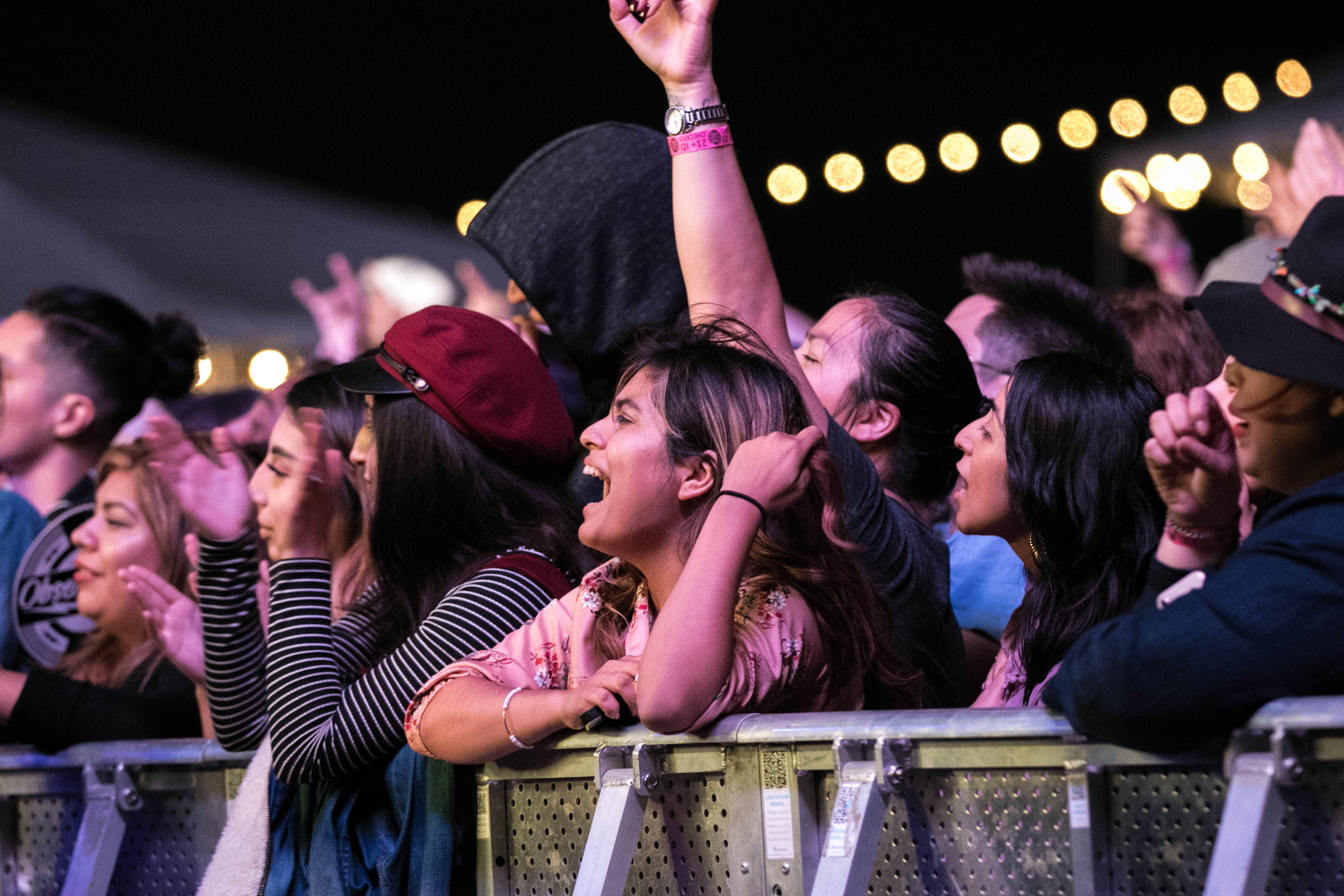
Tropicalia feels like a direct response to the hate-mongering rhetoric spewing forth like vomit from anti-immigrant bigots. In lieu of hate, its engine is fueled by the love that emanates from the hearts of a young, queer Latinx community, their elders and allies. Alfaro notes “what stood out to me was the range of Tropicalia festival goers. I especially saw an emphasis on the Latin importance of family,” evident in the children, parents grandparents and teens in attendance.
If Afropunk is any indication of Tropicalia’s trajectory, then this year’s festival is merely a prelude to what promises to be SoCal’s premiere reflection of the Latinx arts and culture that comprise its backbone.


